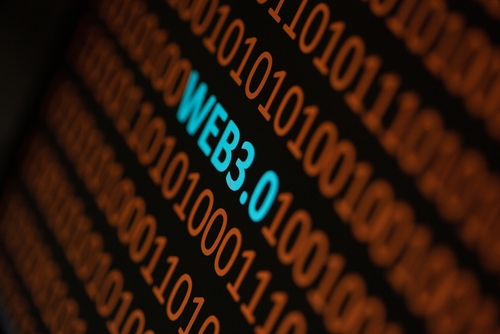

As a self-proclaimed evolution of the internet, it is only right to expect that Web3 will be an improvement on what we have today. After all, there’s no point in having an innovation if it doesn’t perform better than what we are used to.
For it to function, Web3 needs to rest on some pillars. Many proponents have claimed that blockchain technology – the same technology that powers things like cryptocurrencies and decentralized finance (DeFi) – will also have a role to play in bringing Web3 to the world.
So, the question remains; what will blockchain do for Web3? How does the technology that began as a way for transaction records for a cryptocurrency to be taken down become a cornerstone of what will end up being the internet of tomorrow?
When you hear Web3, you’re probably thinking about what it is in the first place. After all, it’s difficult to know how blockchain will be important to the concept if you don’t exactly have an idea of what it even is.
Web3 is essentially the next generation of device computing and the internet as we know it. It combines the power of concepts like machine learning, artificial intelligence, and the Internet of Things (IoT) to innovate and promise benefits like expanded computing power and better technological learning.
The internet as we know it – what many will call Web2 – brought about increased interaction on the internet. Instead of interacting with a single web page that had little by way of design, Web2 allowed us to expand the functionality of web pages. Social media platforms soon became a thing, and this gave rise to better interaction among people and the rise of things like ride-hailing, content streaming, and more.
While Web2 was and is revolutionary on several fronts, it also has a major problem – the centralization of power and data. Big Tech platforms today control more data than entire governments, and this is on a slow day. Google controls about 92% of all mobile search traffic. Facebook and Twitter combined to control the vast majority of social interactions. This centralization of data can be dangerous, especially for data safety and anonymity sakes.
A lot of people will prefer that their data remains in their hands, and emerging technologies are promising to give them just that.
However, with blockchain technology also being seen as a technological concept of the future, many have touted its importance to Web3 and why the internet could very well become one day.
Currently, the internet we use works like a single computer. All of the data on the internet is subject to storage in a single location- which we call centralization. There are servers in farms across different locations or trusted institutions that help large tech platforms to manage their data.
To protect this data, it is important to have firewalls and system administrators on these servers. However, in these cases, control over this data is given to specific centralized entities. If the world has taught anything, it is that centralized authorities might not necessarily be the best to trust with anything. Why not let control be decentralized?
According to experts, the foundation of the new web model will focus on introducing an open, autonomous, and intelligent internet. Web3 will focus on decentralizing data and ensuring that no single source can be attacked.
As the most critical aspect of Web3 has shown, machine learning will play a significant role in the development of this future internet iteration. However, besides the introduction of machine learning and the Internet of Things, the next generation of the internet is also expected to run on the operations of decentralized protocols.
So, it goes without saying that we need to find a proper confluence of blockchain in Web3 networks that can be interoperable and still support the rise of automation. Blockchain – with their smart contracts – will be able to connect to each other and provide a world where data storage and file access are truly decentralized and censorship-resistant.
With anonymity being a critical part of internet operations today and an area where many tech experts would like to see improvements, decentralization appears to be the solution to this problem. And decentralization won’t be possible without the use of blockchains.
With blockchain, we can change how we see data management and storage. For a perfect example of this, take the Super Protocol. Recently built, this protocol focuses on providing the benefits of blockchain technology and confidential computing to prioritize data protection.
The Super Protocol focuses on integrating blockchain and cloud computing. So, while services like Microsoft Azure and Amazon Web Services offer cloud computing in today’s internet iteration, the Super Protocol is building for the future.
With platforms like the Super Protocol, we should see extensive blockchain technology applications in Web3. Many are beginning to see that the world – and the internet – needs improved data management, and blockchain could be the solution we need as we evolve the internet.
Denver, Colorado, 24th February 2025, Chainwire
Denver, Colorado, 20th February 2025, Chainwire
Washington, D.C., 18th February 2025, Chainwire
Dubai, UAE, 27th January 2025, Chainwire
Those who enter the market at this time may be surprised to hear that Bitcoin…
George Town, Grand Cayman, 22nd November 2024, Chainwire